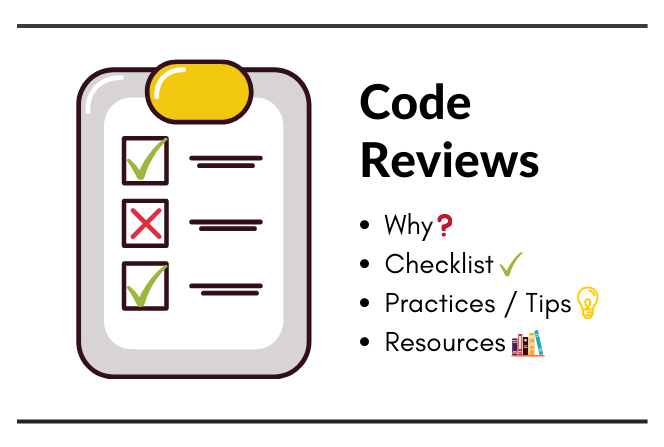Get latest articles directly in your inbox
These are highlights/notes from book “How to Be a Capitalist Without Any Capital: The Four Rules You Must Break To” by Nathan Latka. The book covers a new apporach about how you can enter the New Rich. It throws light on why most popular sayings and advice don’t work in new world. Nathan gives practical techniques on how you can get rich just like he did. Really good read if you are a budding entrepreneur!
These are my personal notes/highlights which I took while reading.I would recommend reading the book, but in case you are short on time - just skim through these notes 😊
In case you are looking for book recommendations! Check Learnshots
Introduction
- How are these people so successful—and free—while you’re withering away underneath fluorescent lights at your desk job 50+ hours a week?
- It’s because they’re part of the “New Rich,” as Tim Ferriss calls the segment of the population who have figured out how to maximize everything in their life—even if it’s not much—so it becomes an asset that works for them. The New Rich are resourceful with their time, their money, and their energy.
- We drive wealth by taking advantage of new tools quickly and figuring out how to get those tools to work for us so we can work less.
- A magician practices a series of “moves” or “tactics” behind a curtain so that when the trick is put together, the average viewer misses the sleight of hand. If you saw the magician practicing behind the curtain, you’d think, “I can pull that trick off, too!” Building wealth is the same.
- bigger point was that you have to make choices based on the life you want to live now—and the life you want to live in the future. It’s all about opportunity cost.
- It means following your gut when you see a big opportunity in front of you, even if it goes against everything you’re told you’re “supposed to be doing” with your life.
- You just need to be willing to break the rules and start looking in the right places.
- RULE 1: Don’t Focus on One Thing
- you’d never want to build your wealth around one endeavor. If that one thing fails, you’re destroyed, and you have to start again from scratch
- RULE 2: Copy Your Competitors
- Launching a new idea is actually a terrible approach to gaining wealth—you have to pay for all the mistakes
- If you build your life around a goal, the second you achieve it, it seems like there’s nothing left to achieve. And you end up bored.
- It’s much better to invest your energy into creating, feeding, and nursing a system that pumps out golden eggs every day.
- Passive income first. Then you can dream bigger than you ever thought.
Rule 1: Don’t focus on one thing
Focus on more than one thing. But you also need to know what projects are worth chasing, how to split up your time, and how to make the ventures you do pursue work for you.
The two biggest factors in success are actually timing and luck.
Multiplying is the epitome of working smarter, not harder.
The batter who repeatedly gets the win takes multiple swings, hits many balls, and understands how to hit doubles over and over again. He doesn’t step up to the plate planning to hit one grand slam that will win the game.
It’s OK to miss, but it’s important that you actually swing at those good balls. You get three, and if you fail to swing at them, it does a lot of bad things.
Any venture you attempt and then shut down accelerates your learning. Swinging at each good opportunity sets you up to learn three times faster than if you’d never tried.
Remember, I said the most important thing to focus on right now is learning to maximize your time, your effort, and your output.
To make the Three-Focus Rule work, you’re going to leverage the 80/20 rule when pursuing new opportunities.
Focus 80 percent of your time on one project—the one that brings in the most money or that has the potential to be your biggest earner. Split the other 20 percent of your time between the two remaining ventures.
Just don’t try to launch three huge new projects from scratch. You’ll likely fail at all of them and kill your spirit in the process.
Test your luck. Open your odds to good timing.
Rule 2: Copy your competitors
They have done loads of research, they are already successful.
Why not tweak on their idea and grow instead of doing something unique. You are building business not inventing new stuff.
The way to get filthy rich is by aggressively copying others and then adding your own twist.
Copying competitors isn’t revolutionary. It just seems outrageous because most people are scared to do it.
You have to copy to win, but I get that it’s hard to know what to do, whom to copy, or where to start. The key is to analyze a business and pinpoint a need it’s not meeting for its customers.
You’re going to build yourself rich by copying one, making it better, and creating momentum.
Do it now. Do it aggressively. Do it quickly.
Rule 3: Quit setting Goals
Set big, audacious goals, then forget the goals and focus on creating a system to produce the outcome you want not just once, but over and over again. That’s how we improve our performance, productivity, and results.
Knowing the minutiae that go into a process lets you create systems that automate the details. It gives you flow and routines. It frees up your brain space so you can keep scaling up with minimal input.
Systems thinking requires you to give up making money today in exchange for taking the time, energy, and sweat equity to set up systems that will do the work for you in the future.
It’s a lot of up-front work, and that’s the problem for most people. They prefer the short-term win. They need the instant gratification.
Build systems around the things that take up most of your time.
Types of system blindness:
- Material
- Time - We always project that things can be done faster than they actually can be done
- Start/End Blindness - We always project that things can be done faster than they actually can be done
ANATOMY OF A NEW RICH SYSTEM
- Inputs: What do you have to feed the system to make it work?
- Outputs: What does your system produce for you once it’s set up?
- Feedback loops: Can an output of your system get you better, cheaper, or faster inputs to create a snowball effect?
The sweet spot is a balance: start by drilling down to every possible detail of what needs to be done, then look for ways to minimize steps.
So be hyperintentional about where you’re spending your time and ruthlessly kill any systems that don’t have a direct correlation to growing your bank account.
To position your overall success for the long term, you want to become a master at producing more. That means updating inputs and machines, your own time and energy (as an input) included.
Rule 4: Sell pickaxes to gold miners
Trying to come up with a brand-new business idea is stupid if you want to get rich. There are too many opportunities for failure,
Look at what the masses are going after, and then sell into the market that others have built around it.
There’s always room to learn new things. A great way to develop expertise that you don’t already have exposure to is by interviewing people in the space.
Rule 5: The new rich arsenal
Set yourself up to have an unfair advantage against others.
The key tactics that the New Rich leverage do involve universal business skills, but they use them in very specific ways to get what they want.
Once you’ve put a higher value on your time, you’ll realize you’re worth $X per hour, or $Y per week. You’ll know what amount of money gets you out of bed. This clarity will help you see what you should focus on today
The key is to tell a story that taps into fear—one that says, “This could happen to you.” Then sell businesses or consumers the vitamin.
Fear of Missing Out: the quickest way to free up your calendar is to get others to do the time-consuming stuff for you.
Fear of the Unknown:“We spend tons of money triggered by what-if thinking. And companies love to heighten those what-if scenarios, those fears”
Fear for Your Life: Think every life insurance policy ever sold
Fear for Your Health: It’s a trillion dollar industry. Remember “Health first” mindset.
Fear of Losing Freedom: Entire productivity market is around this fear
Fear of Loneliness: Social media boon Eg. FB, Instagram, twitter.
Fear of Failure
Fear is a powerful, powerful persuader.
One of the reasons you lose negotiations is when you fear you’re going to lose the negotiation. That’s why it’s best to start negotiations when that fear doesn’t exist. In other words, negotiate when you don’t have to.
A circle has no corners. It’s not defined. It can roll anywhere. You want to be that. You want to be unpredictable. It gives you incredible leverage because you can become the center of your competitors’ interest.
Your brain short-circuits in the face of a huge project if you don’t organize your thinking. You have to sort your ideas and group them into yearlong terms. Then execute them weekly and make sure you live in the day so you don’t miss out on life
Dream in Decades → Think in Years → Work in Weeks → Live in Days
I like winning; it’s what motivates me, so I tie my big goals to mini-competitions with other people who are my age.
Most things on our list never get done. We add to them and let tasks roll over to the next day, and the cycle never ends.
The quick rule I follow for myself here is to always tackle the big stuff first, right in the morning.
The concept of batching time is simple: dedicate blocks of time (at least three hours) to one task or project. No switching to do little things in between.
Do these SIX things after you BUY A COMPANY
STEP 1: Double pricing.
STEP 2: Focus on getting current customers to pay more
STEP 3: Optimize SEO.
STEP 4: Change where your payment pop-up shows.
STEP 5: Understand the actions that turn leads into customers.
BONUS STEP 6: Launch an affiliate program or partner network
If buying a business sounds intimidating, know that it’s actually way smarter, easier, and less risky than starting one.
Unconvetional Investing
- The smarter thing to do, and what I do when I’m interested in making a larger investment in a company, is ask to see their numbers
- One of my key strategies is to look for a business that is making a big monthly payment on something.
- Winners don’t have new ideas. Rather, they copy the heck out of their competitors, then add their own flavor or unique angle to win.
Multiplying your business
- Bringing in more customers is actually the last thing I try to do when strategizing revenue growth. It’s much more effective to think about how you can drive new income from people who are already paying or following you.
- Let this be your mantra anytime you think about growing your business: Go deeper, not wider.
- Multiplying Tactic #1: Increase “Wallet Share” by Increasing the Time a Customer Is Under Your Control. Wallet share is simply the amount of money a customer spends on your products.
- You want to maximize the amount of time a customer spends in your ecosystem so you can put more products in front of them.
- Multiplying Tactic #2: Once You Have More Wallet Share of Customers, Negotiate Discounts on Things You Already Buy
- Multiplying Tactic #3: Get Your Biggest Revenue Streams Working Together
- The goal here is to get all three multiplying tactics working at the same time: expand wallet share, negotiate discounts on things you use in bulk, and get your biggest revenue streams working together.
Selling a Business
- The decision to sell has everything to do with time—the time you spend running the business, the time you’d need to grow it, and market timing.
- joining the New Rich is all about passive income. If you’re spending all your time running a company, it’s preventing you from generating other revenue streams.
- Cash in while it’s hot
- Think of the market as a hamburger. There are several different but complementary players all around you like buns, tomatoes, onions, pickles, ketchup, cheese, and meat. If you’re a cheese and can’t find a direct competitor to buy you—another cheese—look for complementary companies, like the lettuce or the bun. Look around and understand what else your customers are buying.
- if you’re young and single and have no responsibilities, even if you’re a student in a dorm room, now is the time to take big risks because if you fall, you won’t fall far. You don’t have a lot to lose.
Take the win. Momentum is a huge asset. Keep it, hold it, and create it.
More book summaries
Follow my reading list on Goodreads. Share your favourite reads in the comment section. Do drop a 👍 and share it with your friends.
Liked the article? Consider supporting me ☕️
I hope you learned something new. Feel free to suggest improvements ✔️
I share regular updates and resources on Twitter. Let’s connect!
Keep exploring 🔎 Keep learning 🚀
Liked the content? Do support :)












